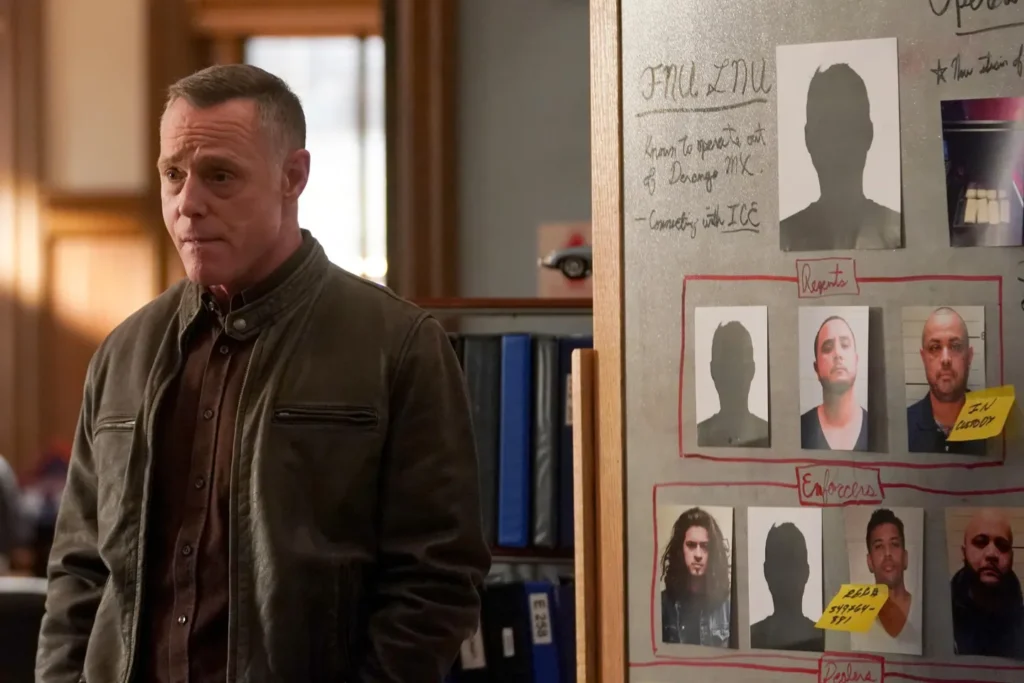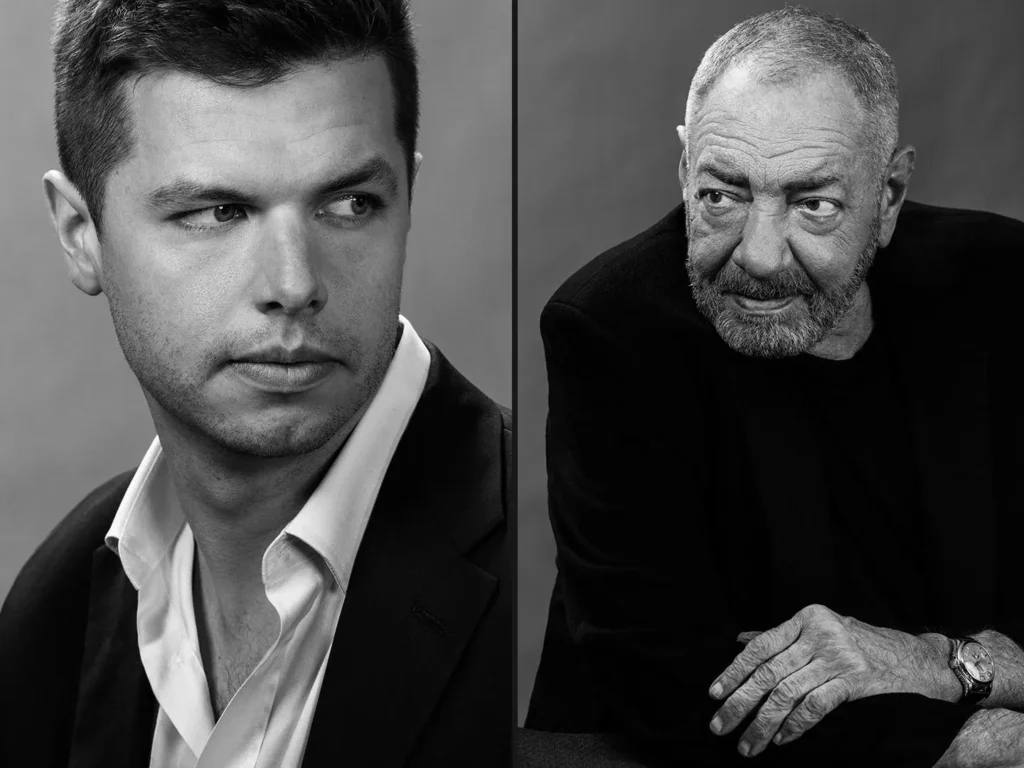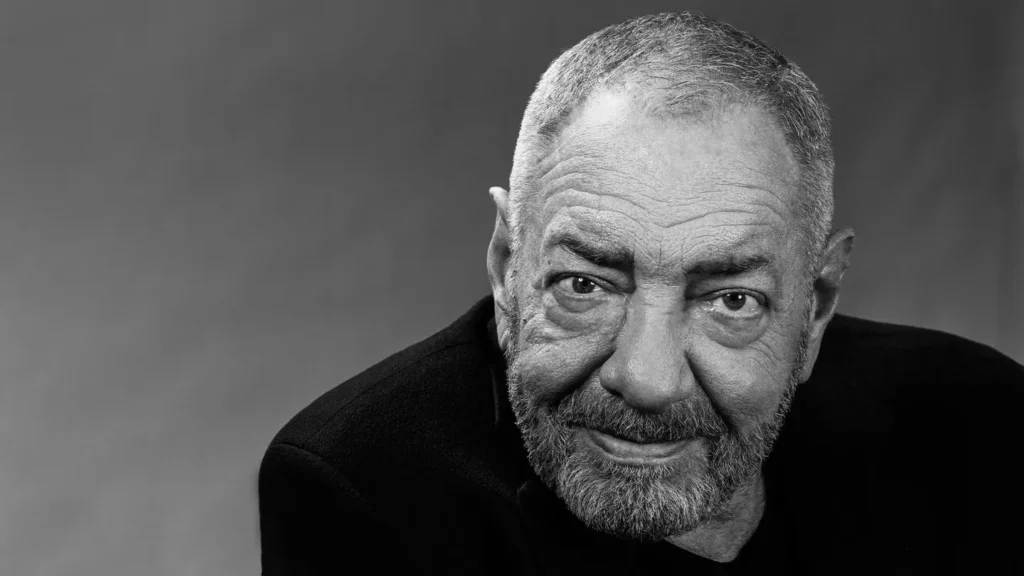In Hollywood, few are as committed to the traditional broadcast TV schedule as Dick Wolf. In a typical year, he produces enough episodes of his renowned franchises like Law & Order, Chicago, and FBI to fill three primetime nights.
However, 2023 proved to be no ordinary year due to strikes by the writers’ and actors’ guilds, disrupting production for nearly five months. Despite facing significant financial losses, Wolf, at 77, remarkably managed to resume filming eight of his shows within four weeks of the strikes ending.
This remarkable feat showcases Wolf Entertainment’s unparalleled efficiency, with Forbes estimating Dick Wolf’s pre-tax and agent fee earnings over his 30-year-plus career at $1.9 billion. When factoring in his assets, including homes, yachts, and an extensive art collection, Forbes estimates his net worth to be $1.2 billion, placing him in the exclusive company of television billionaires alongside Oprah Winfrey and Tyler Perry.

Born to Rerun: Wolf and the cast of 'Law & Order' celebrate the 300th episode of the groundbreaking series.MARK MAINZ/GETTY IMAGES
In an era dominated by streaming giants like Netflix, Apple, and Amazon, Wolf Entertainment stands out by producing nearly 200 episodes annually—a stronghold in the traditional broadcast schedule. Notably, seven Wolf shows, including FBI and Chicago Fire, ranked among the top 16 most-viewed scripted programs during the 2022-2023 television season.
As the undisputed broadcast king, Dick Wolf secured an extraordinary deal with Universal Television. This deal grants him nearly half of his shows’ profits whenever the studio sells them to networks like NBC, CBS, syndication to cable channels, foreign markets, or streaming platforms. Additionally, Wolf receives an executive producing fee, estimated at up to $350,000 per episode for his most popular shows.
Over the years, Wolf’s deal has expanded, including bonuses, protections, and unique contract features. Notably, after the fifth year, his series guarantees that the network covers the full production costs, turning syndication revenue into pure profits for Wolf Entertainment. Despite expenses, Forbes estimates Wolf earned around $125 million in the past 12 months before taxes.
Cliff Gilbert-Lurie, a senior partner at Ziffren Brittenham who negotiated all of Wolf’s contracts, notes the uniqueness of Wolf’s deals, stating, “If I had the next Dick Wolf today, I couldn’t get him those deals.”
While other TV hitmakers like Chuck Lorre, David E. Kelley, or Shonda Rhimes have achieved syndication paydays, Wolf stands out due to the volume and longevity of his shows. Law & Order, which premiered in 1990, is the second-longest-running network drama with 22 seasons, surpassed only by Law & Order: SVU with 24 seasons. Wolf Entertainment has produced over 2,000 episodes, establishing a lasting legacy in the television industry.

All in the Family: Two of Wolf's most enduring characters, SVU's Stabler and Benson, are named after Wolf's children, Elliot and Olivia.JOSE PEREZ-BAUER-GRIFFIN/GETTY IMAGES
Branding is second nature to Dick Wolf, whose journey began as an advertising copywriter in New York, contributing to major campaigns for Crest and National Airlines. Transitioning to TV writing in the 1980s with Hill Street Blues and Miami Vice, he marked his debut as a creator with Law & Order in 1990. The show was groundbreaking, featuring plots inspired by real events and a bifurcated structure—unveiling a crime in the first half and addressing a broader moral dilemma in the second. Law & Order achieved both high ratings and awards, securing 11 consecutive Emmy nominations and one win for Outstanding Drama Series from 1992-2002.
By 2004, Wolf had successfully launched two spin-off shows, SVU and Criminal Intent. During contract renewal negotiations with Universal, which was in the process of selling to NBC, Wolf secured profit participation, becoming near-equal partners with the studio. Operating Wolf Entertainment like a mini studio, he entrusted a core team of five executives to oversee over 3,000 writers, actors, and crew members on the shows.
Describing himself as more than just a producer, Wolf emphasized the significance of Wolf Entertainment, asserting, “We’re bigger than any studio in television. There’s no other studio except Universal that has that many broadcast shows on the air.”
The traditional syndication model, which becomes lucrative after 100 episodes, incentivizes Wolf to produce numerous episodes. However, by 2011, he faced a setback with only one show on the air after the original Law & Order’s messy cancellation in 2010, Criminal Intent’s cancellation in 2011, and the failure of a Law & Order spin-off set in L.A. Shortly after hiring Rick Rosen from WME to rebuild his empire, Wolf pitched NBC on a novel idea—to bring his procedural format to Chicago, leveraging the city’s film production tax credit. The gamble paid off, leading to the creation of a shared universe of Chicago-based shows that could air consecutively on the same night, initially met with some resistance.

Three's Company: Wolf's trio of Chicago shows has created a "linear binge" night for NBC.LORI ALLEN/NBC/GETTY IMAGE
At one point, [Former NBC chairperson] Bob Greenblatt warned, “If you bring up Chicago P.D. one more time, I’m going to cancel Chicago Fire,” according to Rosen. However, about three months later, Greenblatt was asking, “How soon can you have Chicago P.D. ready?”
This innovative “linear binge” concept would reshape the network television landscape in the ensuing decade. Chicago P.D. premiered in 2014, followed by Chicago Med the next year, creating a three-hour block for NBC on Wednesday nights. Cross-cutting characters and crossover events boosted ratings for all three series.
A trilogy of FBI shows produced by Wolf followed on CBS on Tuesdays. With these new franchises thriving, Wolf revived the flagship Law & Order in 2020 and introduced Law & Order: Organized Crime in 2021 (bringing back Christopher Meloni’s beloved SVU character, Elliot Stabler), along with SVU for NBC on Thursdays. Other networks adopted a similar stacked franchise strategy for shows like NCIS and 9-1-1. Wolf comments with a laugh, “I mean that’s great if you can do it. Imitation is the sincerest form of flattery.”
In theory, this franchising strategy serves another purpose—linking the series makes it more challenging for any of Wolf’s shows to face cancellation. As the format takes precedence over individual actors or ongoing narratives, these shows are essentially designed to endure indefinitely.
Wolf believes that the idea of the “imminent death of broadcast television is overstated,” as it remains the premier platform to reach 10 million viewers in a single night. He aspires to add even more network shows and truly become TV’s “last man standing.” However, he acknowledges the inevitability of the shift towards streaming. He states, “Once it’s gone it’s gone. I think there’s another 10-12 years of broadcast before it’s basically all streaming.”
While big streaming deals for producers still exist, such as the nine-figure contracts offered by Netflix to Grey’s Anatomy showrunner Shonda Rhimes and American Horror Story’s Ryan Murphy, these deals typically lack back-end profit participation and lean towards fewer episodes aimed at niche audiences. Despite the uncertainty about the lucrative residual pipeline in an all-streaming future, Wolf has a plan. Drawing inspiration from the 30-minute dramas of his childhood, he aims to adapt his signature three-hour linear binge into six-episode, half-hour series for streaming. In his vision, he is already envisioning successful franchises and shared universes. He expresses, “In three years, I’d like to be the biggest if not the only person producing volume half-hours.”

The Son Also Rises: “Our fondest hope is that the company becomes an institution," says Elliot Wolf, "that Wolf Entertainment is as ever-present as Dick.”YURI HASEGAWA FOR FORBES
Wolf’s impact extends beyond the executive suite to the production crews, fostering a generational legacy where, in some instances, the offspring of longstanding employees now work on the same shows as their parents. According to Wolf, his New York-based series alone have provided employment for over 35,000 actors, acting as a springboard for numerous A-list talents, including Timothée Chalamet, Adam Driver, Sarah Paulson, Jennifer Garner, Chadwick Boseman, and many others.
Individuals who have remained with the production for multiple decades, such as Mariska Hargitay of SVU, Christopher Meloni of Organized Crime, and the enduring writers, directors, and producers associated with Wolf’s shows, have not only found career-defining work but have also experienced transformative financial gains. In essence, Wolf’s television empire has not only enriched its billionaire founder. According to Gilbert-Lurie, “There are many millionaires that have come out of Wolf Entertainment.”

